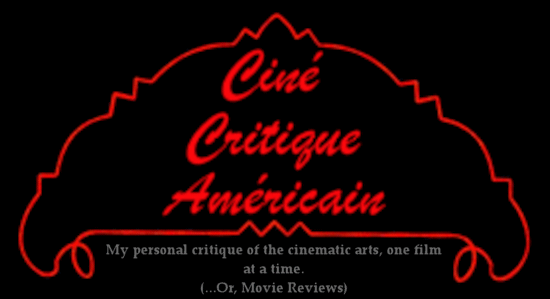If you've seen one
Wes Anderson's movie, you've basically seen them all, and "
Fantastic Mr. Fox" is no different. I already knew this about Anderson's movies, and I wasn't going to bother with "
Fantastic Mr. Fox," but I finally saw one too many reviews and articles lauding Anderson for his genius and wonderful, quirky style and claiming "
Fantastic Mr. Fox" to be Oscar worthy material; I had to see the obvious for myself and write an honest review.
"
Fantastic Mr. Fox" is a stop motion animation film by director and writer
Wes Anderson, based loosely on one of
Roald Dahl's lesser known children's books by the same title. Mr. Fox, voiced by
George Clooney, is a former chicken thief, who gave it up for his family, but yearns to steal again. He plots against three of the meanest farmers (who didn't do anything to him before this) and their large farms. Ultimately, he brings the wrath of these three farmers down upon himself, his family, and the entire forest, and yet, he's somehow still considered a good guy in all of this. (I'm sorry, but that's as far as I could go before I begin dogging this thing.)
Like all
Wes Anderson films, "
Fantastic Mr. Fox" features people, or, in this case, anthropomorphic animals, mumbling rather than having good dialogue or wit of any kind, very little attention to realistic character development, an incredible, yet inane, plot, uncomfortable situations rather than humor, no real flow to the story line, a very poorly constructed story, and
Wes Anderson trying to work out whatever issues he has with his father on the screen. The animation is mediocre at best. Some of it looks like Anderson is going for a very retro kind of feel, about the quality of early
Wallace and Gromit, but other parts, like the way that fur on the animal puppets tends to move about in random directions (even during still shots) because the people moving the puppets for each shot are sloppy and not minding their fingers, make everything feel fake and takes you out of the movie. The puppets are almost expressionless. Facial expressions are limited to movement of the mouth, eyes, and an occasional tear in the eye, so their faces seem rather dead and doll like most of the time. The walking, especially, and movement, in general, is very sketchy and doesn't help to create any illusion of reality or help you immersion in the film. Much of the dialogue seems either improvised or just poorly thought out. (Or just the typical
Wes Anderson aimless rambling.) Characters engage in meaningless banter that goes nowhere and often trails off into mumbling. This tends to break up any kind of flow or rhythm the film might (or might not) have and takes you right out of the moment. There is a brief first and second act, sort of, then the bulk of the movie is third act resolution that tends to wander back into second act territory, as if
Wes Anderson can't decide how he wants the movie to turn out, but isn't going to take any writing back. Ultimately, there is sort of an ending, but not a very good one.
Am I being too harsh? After all, this is a kid's movie, right? Actually, I'm not sure if it is. Sure, it was based on a book intended for children, but this really isn't a movie for kids. This is just an animated version of the same movie that
Wes Anderson does every time. Children may find something enjoyable in it, but it wasn't made for them. The humor, if you can call it that, will, mostly, go right over their heads. Children are likely to get bored with such a poorly paced story. There's plenty of smoking and drinking, foxes kill chickens, which seem to be the only animals that are not anthropomorphized, Mr. Fox's tail is dismembered by gunfire, a rat dies in a knife fight and Mr. Fox delivers an incredibly cynical eulogy that is bound to disillusion most children watching.
Wes Anderson can't even try to make a movie without profanity. He didn't actually use any profane language in "
Fantastic Mr. Fox," but he also didn't write a movie without it. He just replaces the amply amount of profane language with the word 'cuss,' as in, 'What the cuss?' (We all know what you
fraking mean.) This is distracting at best and makes you feel like you're watching an episode of the "
Smurfs" at worst. It's also not very original. (
Curses, foiled again!) I'm all for making more realistic and challenging movies for kids. If you challenge children, they will rise to the occasion, and if you pander to them, they don't grow, but this material is neither realistic nor challenging to children. "
Fantastic Mr. Fox" feels like
Wes Anderson is making a movie for adults that spoofs or feels like a kid's movie, but children watching it is definitely an afterthought.
Eighty-seven minutes has never felt so long and I am really tired of Anderson trying to work out his 'daddy issues' on the big screen.
Wes Anderson is not a great writer or director. He once made a
movie that connected with a small number of people and has been rehashing the same old tricks ever sense. Having visible titles all over your movie and a, so called, quirky style does not make you a great director or writer. It's poor storytelling and is alienating to audiences in general. If one is going to make movies that pander to small, specific audiences, and lack the basic story structure to make that movie enjoyable to anyone outside of that small group, you might as well just keep those films in limited release, or better yet, straight to DVD. Also,
Wes Anderson might want to think about not
phoning in the entire directing job from another country when he makes his next, inevitable, film, like he did with "
Fantastic Mr. Fox." It shows.
I don't recommend "
Fantastic Mr. Fox" to anyone who doesn't already have a deep love of
Wes Anderson's other films and I would strongly caution parents from letting their children see this movie. My best advice to parents is to see it yourself first and see if it is what you want your children watching.
P.S.
On a more personal note, (more personal than that??!) I would like to address the recent talk about "
Fantastic Mr. Fox" being nominated for one or multiple
Academy Awards. If there is any justice in this world and if the Academy members are sane and rational people, any category that "
Fantastic Mr. Fox" could possibly be nominated for should already be occupied by
Henry Selick's "
Coraline," a truly great stop motion animation children's movie, and any category that Anderson himself could be nominated for should, similarly, be already occupied by
Henry Selick, a talented and deserving director who personally oversaw every detail that went into the making of "
Coraline;" all three years of it. The Academy should not reward sloppy and lazy work by chalking it up to personal style.
I would also like to take this opportunity to personally apologize to
Henry Selick on
Wes Anderson's behalf.
Wes Anderson should be ashamed that he couldn't even bother to be in the same country where his movie was being filmed, for phoning in his directions by taking videos of himself and sending them to the set, for trying to cover up all the obvious flaws in this film by casting
George Clooney in the lead role, and for personally putting the genera of stop motion animation back 40 years. Mr. Selick, I am so sorry that a
shiny piece of excrement steals the light from the truly magnificent piece of art you created early this year and I sincerely hope that the
Academy of Motion Picture Arts and Sciences does not fail to recognize yours as the greater talent and achievement when it hands out awards this March.

















